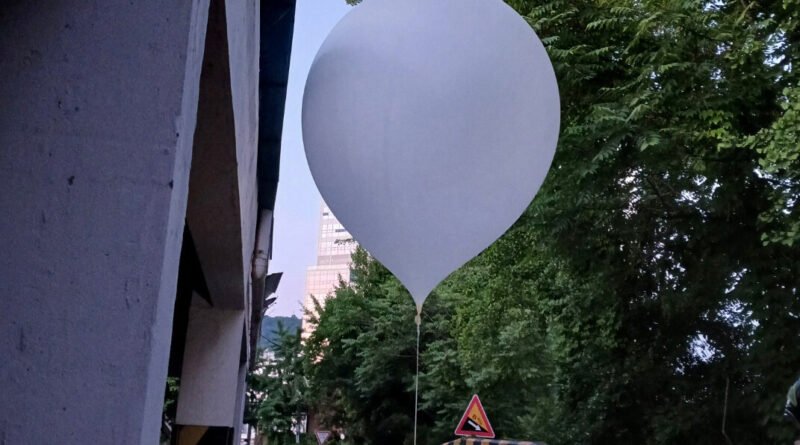South Korea plans to restart military exercises near DMZ in response to North Korea sending trash-filled balloons
South Korea is terminating a significant military agreement with North Korea after enduring a series of provocations, including the use of balloons to disperse refuse over South Korea.
South Korea is ending a landmark military agreement with North Korea following a campaign of harassment by the North that included floating refuse over its southern neighbor.
South Korea’s military didn’t shoot down the incoming North Korean balloons to avoid potential damage on the ground and an unwanted armed clash with the North, leading some citizens to express concern online that, in the future, North Korea might use balloons to drop biological or chemical weapons.
The communist regime in Pyongyang said the balloon campaign was itself retaliation for the actions of South Korean citizens who had previously flown balloons carrying items into North Korea. Those items included money, medicine, and USB sticks with South Korean television shows and films.
The agreement required the two Koreas to cease hostile acts against one another at border areas along the DMZ, including military firing exercises, aerial surveillance, and psychological warfare.
South Korea said the deal’s suspension would formally allow it to restart front-line military drills and take responses to emergent North Korean provocations.
A central question now is whether South Korea will resume its use of loudspeakers to play anti-communist broadcasts and pop music over the border. When it did so last in 2015, North Korea responded by firing artillery at South Korean targets, prompting South Korea to respond in kind.
No casualties were reported at that time.
North and South Korea separated during a brutal civil war in the 1950s, and though they signed an armistice in 1953, they never concluded the war with a peace agreement.
Pyongyang has begun escalating its aggression towards the South in recent years, raising fears of the potential for armed conflict on the Korean Peninsula.
Last year, for example. North Korea test-fired a salvo of nuclear-capable weapons during what it said was a rehearsal for a preemptive nuclear strike on South Korean cities and allegedly jammed GPS navigation signals in South Korea.
The Associated Press contributed to this report.






